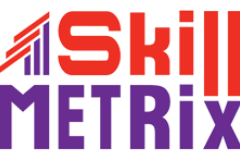Module-1: DevOps Introduction (3 Hours)
What is DevOps?
DevOps Roles
DevOps Necessities
DevOps Problems & Solution
Making a DevOps Transition
DevOps: Continuous Delivery and Benefits
DevOps: Lean thinking, a change of culture
Module-2: Basic Linux and Networking Concepts(3 Hours)
Architecture and Filesystem of Linux
Linux Bash Commands
Managing Services on Linux
Installing and Configuring Apache
Module 3: - Source Code Management and Version Control (3 Hours)
GIT
Module 4: - Continuous integration with Jenkins (6 Hours)
Jenkins
SonarQube
Junit
Maven
Module 5: â?? Docker Session & Orchestration Tools (6 Hours)
Docker
Docker Swarm
Docker Best Practices
Docker Images
Docker Container
Module 6: â?? Kubernetes (6 Hours)
Kubernetes
Kubernetes Architecture
Kubernetes Pods, Replicas, Replication Controller
Module 7: - Ansible, Infrastructure as a Code (6 Hours)
Ansible
Baisc of Yaml
Module 8: â?? Chef and its component (6 Hours)
Chef
Basics of Ruby
Module 9: - Continuous Monitoring with Nagios, ELK and Grafana (5 Hours)
Nagios
Module 10 - DevOps Best practices
Resume Build
DevOps Interview Questions
Module 11: - Cloud Computing with AWS (10 hours)
AWS Services - Ec2, Cloud Formation, VPC, S3 , IAM
AWS Best Practices
Module 12: - Projects
â?? Project 1: Automating Webserver and Website hosting with Ansible
â?? Project 2: Microservices Automation and Deployment Using AWS and Docker
â?? Project 3: End to End Continuous Delivery Automation with Git, Jenkins, Ansible including Continuous Integrations, Continuous Testing and Continuous Deployment Pipeline
â?? Project 4: Packaging Microservices on Docker Containers
â?? Project 5: Complete CI/CD pipeline setup using Git, Jenkins, Tomcat, AWS
â?? Project 6: CI/CD by Dockerizing a Jenkins Pipeline.





